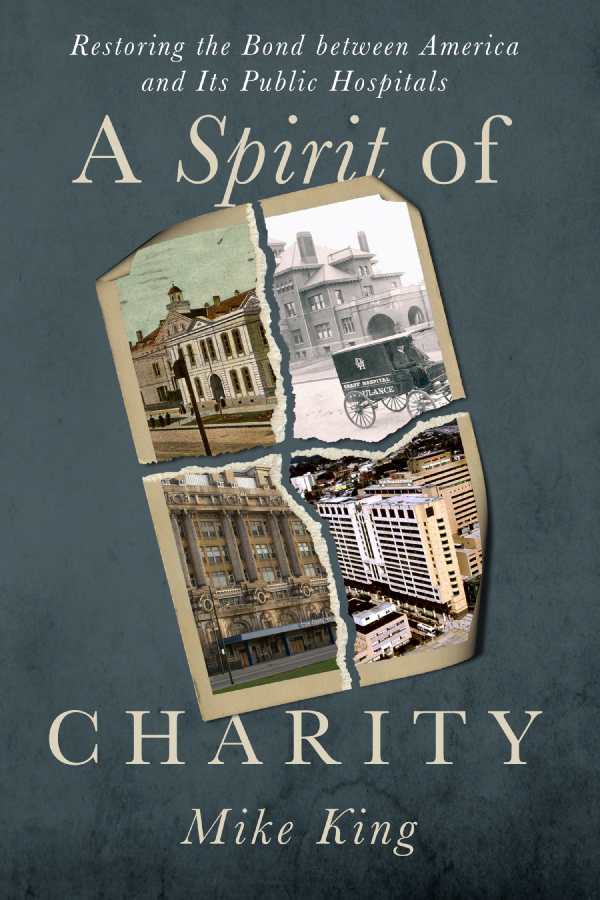
A Spirit of Charity
Restoring the Bond between America and Its Public Hospitals
This fascinating work of medical history is refreshing and notable for its treatment of race as a critical part of the healthcare debate.
Mike King’s A Spirit of Charity places the history of public healthcare in America in its proper historical context.
In a political climate that often chooses to place public healthcare as a modern debate, it is easy to forget that providing medicine to the poor is one of the long-standing social issues of the last two centuries of US history. Starting after the Civil War and continuing to the present day, the book focuses on public hospitals, particularly Grady Memorial Hospital in Atlanta, Georgia. It covers not only the remarkable work that these medical centers have done, but how they have remained in existence in the midst of a financial climate generally hostile to public hospitals.
The book is thorough, extremely well-researched, and comprehensive, balancing its exposition of the social issues surrounding public hospitals with the constant, wearying financial crises that have continuously threatened their existence. But the bigger revelation is that institutions like these exist in America at all. Upon conclusion of the book, it is even more staggering that such large, important hospitals have had such a powerful impact on public health without receiving greater accolades. Regardless of political or social position, it is impossible not to be grateful for the information that this book imparts. This is an important corner of American life that has been sorely neglected.
One testament to the importance of this book is its unapologetic commentary on race as it relates to healthcare. Here, Grady is both a poster child for integration and a sobering reminder of the days when African American patients were treated in a separate—but most assuredly not equal—wing. The book makes clear that this deep racial wound is still not far below the surface, a fact that ought to be required knowledge for healthcare workers in modern context.
While most of The Spirit of Charity is historical in nature, the author brings some of his own experiences as a journalist to bear, notably when he discusses Grady Memorial Hospital’s treatment of mental health issues in the Atlanta community. His ability to incorporate true stories into this history helps to make it accessible and humanizes the often-fraught issue of healthcare financing to the poor.
The book paints a grim picture of the future of Grady but indulges in relatively little analysis of the ongoing journey of public hospitals in general. Whether or not these institutions will continue as they are is a hanging question even up to the last paragraph. Though the book presents an excellent history, particularly of Grady, an illustration of the possibilities of continuing public hospitals would have enhanced the conclusion.
A Spirit of Charity is an excellent background and a fitting tribute to public hospitals nationwide, though its focus on Grady Memorial Hospital may make it of special interest in Georgia. Its treatment of race and poverty as critical aspects of community health coverage is both refreshing and well handled. Medical professionals will find it fascinating.
Reviewed by
Anna Call
Disclosure: This article is not an endorsement, but a review. The publisher of this book provided free copies of the book and paid a small fee to have their book reviewed by a professional reviewer. Foreword Reviews and Clarion Reviews make no guarantee that the publisher will receive a positive review. Foreword Magazine, Inc. is disclosing this in accordance with the Federal Trade Commission’s 16 CFR, Part 255.
